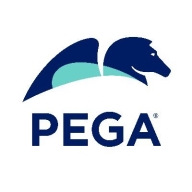

Pega Platform and Versata BRMS are competing products in the business rule management space. Pega Platform has a slight edge in terms of user satisfaction concerning its feature set and ease of deployment, while Versata BRMS offers better pricing flexibility and potential return on investment.
Features: Pega Platform excels with comprehensive decision automation, process management, and robust analytics. It offers strong integration options and adaptive case management. Versata BRMS is notable for its rule engine sophistication, facilitating straightforward business rule customization and management. While Pega leads in analytics, Versata emphasizes rule effectiveness and efficiency.
Ease of Deployment and Customer Service: Pega Platform is favored for quick and smooth deployment, supported by extensive documentation and accessible technical support. Versata BRMS enables efficient deployment but requires thorough customer consultation for solution customization, which can extend integration timelines. Pega’s customer service is seen as more proactive, while Versata's approach is more reactive.
Pricing and ROI: Pega Platform typically involves higher setup costs, affecting short-term budgeting; its extensive features tend to justify the investment over time. Versata BRMS offers more competitive pricing and a quicker path to positive ROI, thanks to efficient rule management and lower initial costs, presenting a cost-effective choice for businesses aiming to minimize expenses while focusing on strategic rule management.

Pega Platform facilitates business process management, case management, and workflow automation for industries like banking, insurance, and healthcare. It supports digital transformation and customer service enhancements with its low-code capabilities and seamless integrations.
Pega Platform enables users to create efficient systems for case management, financial operations, and digital transformations. It provides tools for client onboarding, quoting, claims processing, customer experience improvements, and content management. Pega's low-code approach allows for the automation of complex processes, making it suitable for enterprises looking for adaptability and rapid deployment. While it offers strong real-time analytics and decision automation, users acknowledge challenges in user interface, integration, and performance aspects. High costs and a learning curve need attention, and enhancements in AI features and cloud services are desired.
What are the key features of Pega Platform?In banking, Pega Platform automates loan processing, accelerates customer onboarding, and manages compliance. Insurance companies benefit from streamlined claims processing and policy management. Healthcare sectors use the platform for patient engagement and care coordination, enabling organizations to adapt quickly to changing industry requirements.
At Ignite, we help our enterprise customers perform better through the deployment of best-in-class business software applications across a range of functional domains. Ignite leads all its efforts with a sharp focus on a simple but challenging objective ― 100% customer success ― measured through achievements of its customers.
We monitor all Business Rules Management reviews to prevent fraudulent reviews and keep review quality high. We do not post reviews by company employees or direct competitors. We validate each review for authenticity via cross-reference with LinkedIn, and personal follow-up with the reviewer when necessary.